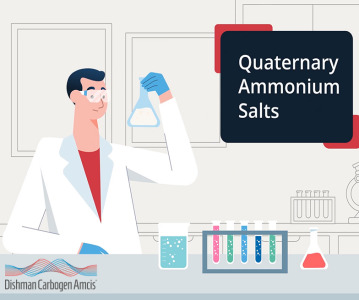Post-Brexit medicines - stuck in the UK?

The EMA needs to provide more action and guidance to help UK pharmaceutical manufacturers, says Thomas Beck, senior vice president, quality management, Recipharm.
Following its latest survey, which questioned pharmaceutical companies on their preparedness for Brexit, the EMA has warned that the supply of more than 100 medicines manufactured solely in the UK is at risk of disruption post-Brexit because the necessary work to ensure they can be licensed and released for sale in mainland Europe has not been carried out.
"As a CDMO with a presence in both the UK and mainland Europe, we are well positioned to support our customers through the Brexit transition and have a taskforce dedicated to meeting the challenge head-on. We also expect to see a greater demand for outsourced manufacturing services from UK Marketing Authorization Holders wishing to supply to Europe, which is further supported by the EMA’s latest survey results, which revealed a lack of readiness for Brexit.
"Of course, ensuring the reliable supply of medicines post-Brexit is paramount and should be one of the main focuses of the industry over the coming months. We would like to see more action and guidance from the EMA to help pharmaceutical manufacturers understand the implications and make the required preparations.
"The best outcome is that a mutual recognition agreement is maintained between the EU and UK, meaning UK manufacturers will be able to continue to follow the EMA regulatory guidelines. The worst-case scenario, where no agreement is reached, may result in medicine shortages, which is extremely concerning.
"Treating the UK as a ‘third country’ post-Brexit also has the potential to create additional layers of complexity that manufacturers will have to adapt to if they are not already familiar with third-party importation practices.
"On the 17th July 2018, MPs backed an amendment to the government’s suggested Trade Bill on the regulation of medicines after Brexit. MPs voted for the UK to take “all necessary steps” to participate in the regulatory network operated by the EMA after it leaves the EU, which is certainly a positive step in favour of ensuring the smooth flow of medicines to British patients.
"The Brexit challenge needs to be faced in a pragmatic way and details need to be confirmed and communicated as a matter of priority or, as the EMA survey has found, patients across the UK and EU could suffer."

Related News
-
News Eli Lilly gets ready to launch five new drugs in 2023
Eli Lilly, the American pharmaceutical company (IN, USA) are gearing up for a big year ahead, with hopes to launch five new drugs and capitalise on growing obesity and Alzheimer’s disease markets. -
News Amgen buys Horizon for $27.8 billion in bold step into the rare disease market
Amgen Inc buys pharmaceutical company Horizon Therapeutics in a multibillion-dollar deal, in hopes to capitalise on it's portfolio of drugs in the highly sort after rare disease market. -
News Pharma Supply Chain People Moves
The latest appointments and promotions across the pharmaceutical supply chain. -
News Merck to donate new Ebola vaccine to defend against outbreaks in Uganda
Pharmaceutical giant Merck has announced they will be speeding up the processing of a new vaccine against the latest strain of the Ebola virus, to be donated to a global non-profit organisation for distribution -
News CPHI Podcast Series: Driving innovation with pharmaceutical startups
The latest episode in the CPHI Podcast Series explores how startups are driving innovation by taking high-risk approaches and doing business with greater agility. -
News Greener and efficient processes: Quaternary Ammonium Salts
Quaternary Ammonium Salts play a crucial part in Organic Chemistry processes at many major industries. Discover why.
-
News Biosimilars save patients $11B annually, but barriers to adoption remain in US market
Biosimilars introduce competition into the biologics market, driving down prices and increasing patient access. -
News WHO recommends use of two monoclonal antibody treatments against Ebola
The health body recommended use of treatments by Regeneron and Ridgeback Bio
Position your company at the heart of the global Pharma industry with a CPHI Online membership
-
Your products and solutions visible to thousands of visitors within the largest Pharma marketplace
-
Generate high-quality, engaged leads for your business, all year round
-
Promote your business as the industry’s thought-leader by hosting your reports, brochures and videos within your profile
-
Your company’s profile boosted at all participating CPHI events
-
An easy-to-use platform with a detailed dashboard showing your leads and performance




.png)


